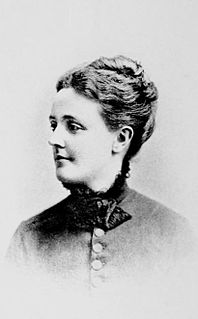Цитата К.С. Льюиса
Пишите о том, что вас действительно интересует, будь то реальные вещи или воображаемые, и ничего больше. (Заметьте, это означает, что если вас интересует только писательство, вы никогда не станете писателем, потому что вам не о чем будет писать...)
Связанные цитаты
Я так и не научился быть писателем. Я никогда не посещал курсы сценаристов. Я никогда не читаю чьи-либо сценарии. Как писатель, моим единственным руководящим принципом было писать о вещах, которые меня пугают, писать о вещах, которые заставляют меня чувствовать себя уязвимым, писать о вещах, которые обнажат мои самые глубокие страхи, вот как я пишу.
Если хочешь быть писателем, пиши. Пишите и пишите и пишите. Если вы остановитесь, начните снова. Сохраняйте все, что вы пишете. Если вы чувствуете, что заблокированы, пишите до тех пор, пока не почувствуете, что ваши творческие соки снова текут. Писать. Письмо — это то, что делает писателя, ни больше, ни меньше.
Я обнаружил, что сочинение стихов укрепляет мои навыки написания песен, потому что вы учитесь заставлять текст работать на странице, не используя ничего другого. Я также обнаружил, что в поэзии я чувствую себя намного более свободным, чтобы писать о самых разных вещах, писать о социальных проблемах или вещах, которые происходят вокруг меня.
Если прозаик достаточно знает то, о чем он пишет, он может опустить то, что ему известно, и читатель, если писатель пишет достаточно искренне, почувствует эти вещи так же сильно, как если бы писатель их изложил. Достоинство движения айсберга заключается в том, что только одна восьмая его часть находится над водой. Писатель, опускающий вещи, потому что он их не знает, только оставляет пустые места в своем творчестве.
Я действительно пишу только о внутренних пейзажах, и большинство людей их не видят, потому что они практически ничего не видят внутри, потому что они думают, что раз это внутри, то темно, и поэтому они ничего не видят. Не думаю, что я когда-либо еще в какой-либо из своих книг описывал пейзаж. Ни в одном из них действительно нет ничего подобного. Я пишу только концепты. Поэтому я всегда имею в виду «горы», «город» или «улицы». Но что касается того, как они выглядят: я никогда не делал описания пейзажа. Меня это никогда даже не интересовало.
Написание не имеет ничего общего с публикацией. Ничего. Люди совершенно сбиты с толку этим. Ты пишешь, потому что должен — ты пишешь, потому что не можешь не писать. Остальное - шоу-бизнес. Я не могу утверждать это слишком сильно. Просто напишите - об остальном побеспокоитесь позже, если вообще будете волноваться. Важно то, что происходит с вами, пока вы пишете рассказ, стихотворение, пьесу. Остальное - шоу-бизнес.
Единственный лучший совет, который я даю начинающим писателям, — всегда писать о том, что они знают. Я предлагаю им писать о людях и местах, событиях и конфликтах, с которыми они знакомы. Таким образом, их письмо будет реальным, и, надеюсь, читатели откликнутся на него. Я стараюсь следовать своему собственному совету.
если вы не сохраните, не оберегаете и не созреете свои силы, а главное, у вас не будет времени и тишины, чтобы усовершенствовать свою работу, вы будете писать вещи не намного лучше, чем пять лет назад. ... вы должны написать человеческому сердцу, великому сознанию, которое стремится восполнить все человечество. В противном случае то, что могло бы быть силой в писателе, было бы только грубостью, а то, что могло бы быть проницательностью, было бы только наблюдением; сентиментальность сводится к сентиментальности — можно писать о жизни, но никогда не писать саму жизнь.
Секрет писательства в том, чтобы писать. Многие люди, которых я знаю, говорят о писательстве. Они расскажут мне о книге, которую собираются написать, или собираются написать, или могут написать когда-нибудь в будущем. И я знаю, что они никогда этого не сделают. Если кто-то серьезно относится к писательству, то он будет садиться каждый день и записывать несколько слов на бумаге.
Ничего не скрывать, ничего не скрывать, писать о том, что ближе всего к нашей боли, к нашему счастью; писать о нашей сексуальной неуклюжести, агонии Тантала, глубине нашего уныния, о том, что мы видим во сне, о нашем отчаянии. Писать о глупых муках беспокойства, о восстановлении наших сил, когда они заканчиваются; написать о нашем мучительном поиске себя, о риске незнакомца на почте, полувидимом лице в окне поезда, написать о континентах и населении нашей мечты, о любви и смерти, добре и зле, конце мира.
Я хочу, чтобы моя музыка была чем-то, что люди используют для доступа к частям себя. Так что в этом смысле каждое произведение, которое я пишу, посвящено всем эмоциям сразу, о границах между ними. Это никогда не касается только того или иного. Это эмоциональное отношение к тем вещам, которые мы не можем описать, к вещам, для которых у нас нет ярлыков. Так что да, это о чем-то, и это имеет смысл. Это не ни о чем, ни о чем-то конкретном — это о том, что ты привносишь в нее как слушатель.




































